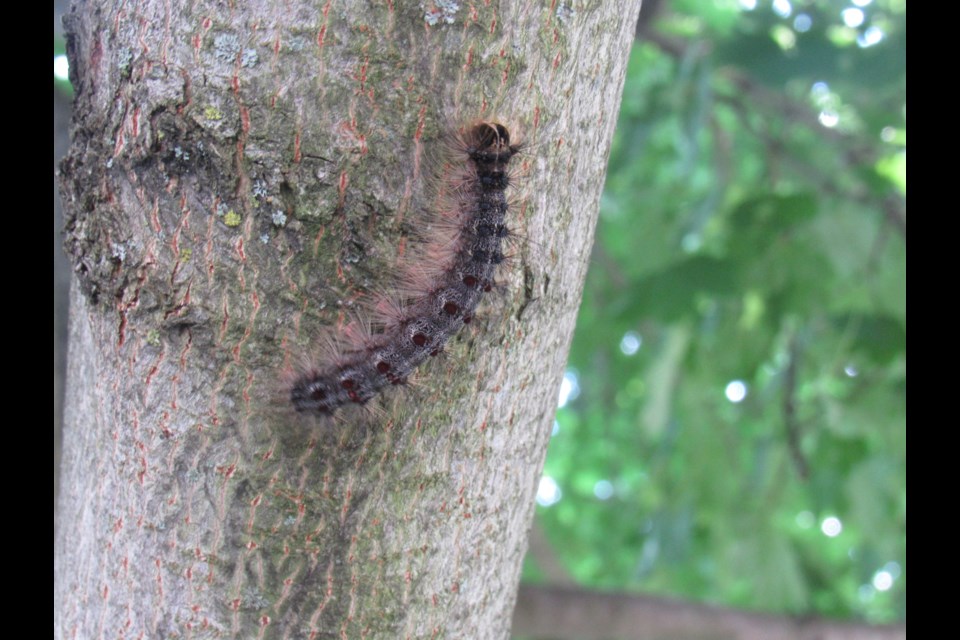Gypsy moth caterpillars are in full force this year and their destruction is in full view for many residents.
Introduced to North America approximately 160 years ago from their native to Europe and Asia, the caterpillars have survived the implementation of insect predators and fungal controls to wreak havoc on foliage on the continent.
Barrie is not immune to the insect.
Steve Rockarts walks through Sunnidale Park often and has noticed quite a bit of damage to the trees.
“We walk there daily and I have not noticed it this bad in past years. The entrance closer to the south end, and that path, clearly shows the devastation,” Rockarts told BarrieToday. “I understand that if the trees are healthy, they should recover, but it looks like fall came early and I would think this would be a concern for the city of Barrie Parks team and how they will deal with it.”
The City of Barrie is looking into the current infestation and doing all they can to cut down the problem.
Kevin Rankin, who is the supervisor of urban forestry and natural areas stewardship operations department for the city, said his department is aware of the levels of gypsy moth caterpillars in Barrie this year and hopes it is starting to wind down.
“This is the peak population year as they are cyclical every seven or so years and cause major defoliation. We also have a consultant doing some defoliation and population inventories for us to make decisions on whether we need to do any treatments this fall or in 2021,” said Rankin.
According to the Ontario’s Invading Species Awareness Program, the insects will defoliate most hardwood trees such as oak, birch, poplar, willow and maple.
During outbreak years, not only will all broadleaf trees possibly be totally defoliated, but the caterpillars appear everywhere, and caterpillar droppings appear to rain from the trees.
Rankin told BarrieToday that healthy trees can take a year of heavy defoliation with limited health impacts, the real concern would be if they cause heavy defoliation for two to three years.
“Some of the oaks in the Sunnidale Park area were treated with an injected pesticide last fall, so the damage to these trees should be limited and not impact enough leaves to cause any health concerns,” said Rankin.
But the destructive insects aren’t limited to parks and heavy forestry.
Kevin has lived off of Browning Trail in the Letitia Heights area for 10 years and has never seen the infestation like this before.
“There are so many that at night it sounds like it's raining when they eat,” said Kevin, who didn't want his last name used. “The roads by our house have been covered with their feces and it is everywhere. I know they are in seven year cycles but this is the first I’ve seen it like this.”
He says he's glad to know that the cycle is nearing the end this year, but the damage to trees has been done.
“There are chewed up leaves all over, in our pool and yards. It causes so much damage, but then we’ll talk to someone not far from us and they have no idea what we’re talking about,” Kevin said. “They weren’t affected at all, but our trees are covered.”



